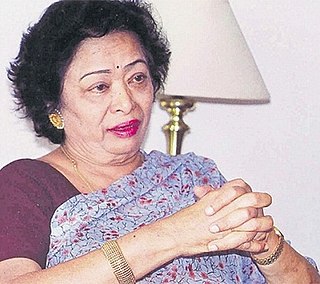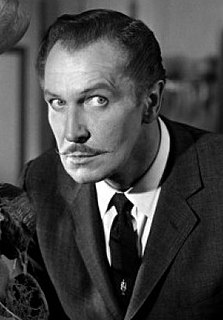A Quote by Jean Kerr
Confronted by an absolutely infuriating review, it is sometimes helpful for the victim to do a little personal research on the critic. Is there any truth to the rumor that he had no formal education beyond the age of eleven? In any event, is he able to construct a simple English sentence? Do his participles dangle? When moved to lyricism, does he write "I had a fun time"? Was he ever arrested for burglary? I don't know that you will prove anything this way, but it is perfectly harmless and quite soothing.
Quote Topics
Able
Absolutely
Age
Any
Anything
Arrested
Beyond
Burglary
Confronted
Construct
Critic
Does
Education
Eleven
English
Event
Ever
Formal
Formal Education
Fun
Fun Time
Had
Harmless
Helpful
His
His Way
Infuriating
Know
Little
Moved
Perfectly
Personal
Prove
Quite
Research
Review
Rumor
Sentence
Simple
Sometimes
Soothing
Time
Truth
Victim
Way
Will
Write
Related Quotes
As far as the hate, it makes me laugh. Everybody is a critic. Every critic I've ever had, they weren't wrestlers. Every wrestler I've ever had critique me, they were always into my stuff or what I'm doing out there. For a non-wrestler, someone who doesn't even know how to lock up, and if we did lock up, they wouldn't know what to do, for them to critique any of us, it really does pop me.
The spiritual kinship between Lincoln and Whitman was founded upon their Americanism, their essential Westernism. Whitman had grown up without much formal education; Lincoln had scarcely any education. One had become the notable poet of the day; one the orator of the Gettsyburg Address. It was inevitable that Whitman as a poet should turn with a feeling of kinship to Lincoln, and even without any association or contact feel that Lincoln was his.
In Jamaica we had the English way of schooling from the age of four, so when I got to America I was already a few years advanced because I started school at the age of three-and-a-half rather than six and my grades moved up accordingly. In America, they start you at school at six because the grades are different. I had to take a test and they didn't know what to do with me. It wasn't that I was any smarter; I had just started younger. All of a sudden I was jumped from eighth to tenth grade. They said I was very smart, but I was only smart in languages, really.
Sometimes you read a passage by a great writer, and you know what he says and how he says it will always be, for you, the only possible way it could be. Less often a painter will describe an event in a way that fits into your interpretation of that event so perfectly that it becomes the event itself.
I like as much time as I can get and I'll do whatever I think is helpful to prepare for a role. Sometimes it's practical research, meaning if I had to write shorthand, I'd learn how to write shorthand. Or if I have to know how to dance a certain way, I would learn that. And then there's just research of talking to people similar to the characters I'm playing. And there's stuff that I just feel is inspiring, whether it be music or a painting or a photograph. I've used a lot of Nan Goldin's photos in the past to inspire me. I use certain paintings and pieces of music.
Being someone who had had a very difficult childhood, a very difficult adolescence - it had to do with not quite poverty, but close. It had to do with being brought up in a family where no one spoke English, no one could read or write English. It had to do with death and disease and lots of other things. I was a little prone to depression.
While it is tempting to believe that you are the victim of certain people or forces beyond your control, A Course in Miracles teaches you to recognize that you are not a victim. Through the grace of God, you are lifted above and beyond any forces-internal or external-that threaten to limit you. Knowing you're not a victim is a major form of personal empowerment.
The truth is that neither then nor at any former time, since I had attained my maturity in Age, Reading and reflection had I imbibed any general Prejudice against Kings, or in favour of them. It appeared to me then as it has done ever since, that there is a State of Society in which a Republican Government is the best, and in America the only one.






































